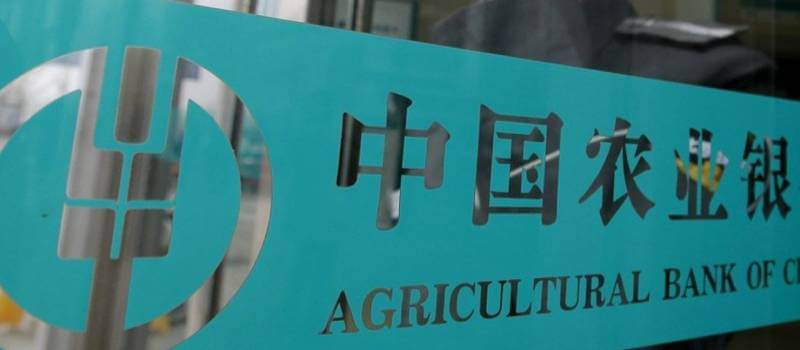MicroStrategy buys 13,005 more Bitcoin, now holds 105,000 BTC
CEO Michael Saylor of the business analytics firm MicroStrategy said in a tweet in the beginning of last week that his company has acquired 13,005 more Bitcoin (BTC). The firm now holds over 105,000 Bitcoin in total. Saylor tweeted, “MicroStrategy has purchased an additional 13,005 bitcoins for ~$489 million in cash at an average price of ~$37,617 per bitcoin. As of 6/21/21 we #hodl ~105,085 bitcoins acquired for ~$2.741 billion at an average price of ~$26,080 per bitcoin.” Earlier in the month, MicroStrategy announced the issue of $400 million in a convertible note, with all the proceeds to be reinvested in Bitcoin. The note was oversubscribed by over $100 million, thus leaving a total of $500 million meant for Bitcoin. 92,000 BTC is now held in the custody of a subsidiary company called ‘MacroStrategy LLC.’ Founded as a business analytics company, MicroStrategy lists its Bitcoin purchases as one of two ‘core’ business strategies. A press release from the company at the beginning of last week stated, “Acquire and hold bitcoin, which we view as a dependable store of value supported by a robust, public, open-source architecture untethered to sovereign monetary policy.” Meanwhile, MicroStrategy’s Bitcoin buying spree probably is not finished just yet. It was reported earlier this month in CryptoSlate, that MicroStrategy is interested in selling over $1 billion of stock and using the proceeds for ‘general purposes’—one of which could include buying even more Bitcoin.
BTC dumps after Agricultural Bank of China issues, deletes, and reissues Bitcoin ban notice

Hold onto your horses! At the beginning of last week, The Agricultural Bank of China (ABC) published a Bitcoin (BTC) ban announcement, which is nothing new, restating that its services must not be used for cryptocurrency-related transactions and activities. Minutes afterwards, this announcement was deleted. For several hours during the morning, everything was quiet. Then, without warning, the ABC went ahead and published the ban all over again. ABC is one of the “Big Four” banks in China – it is state-controlled and owned variously by the government’s investment company Central Huijin (40.42%), the Ministry of Finance (39.21%), the National Social Security Fund (3.02%), and China Securities Finance (1.92%). As part of the first statement, the ABC said that they will not participate in cryptocurrency transactions and related activities. They argued, “Customer accounts participating in such activities will be closed and customer relationships will be terminated.” This announcement was deleted only minutes after being posted, and it was still early Monday morning. But it did not matter, when the news about this statement went out, it immediately sent the price of Bitcoin (BTC) down ten percent (what were they playing some sort of mind game? Had the ABC gone short on crypto themselves, covered their bet, and then gone long?). A few hours later, a similar statement released by the ABC, prohibiting the use of their services for Bitcoin and other crypto transactions, was once again made public by the bank. It stated, among other things, that “in accordance with the recent consultation and guidance requirements of relevant departments of the People’s Bank of China, our bank will continue to carry out the crackdown on virtual currency transactions.”
The bouncing dot, which was the ABC notice, was then put into Communist context as the People’s Bank of China (PBC) issued a statement saying domestic banks and the payment platform Alipay were summoned by the central bank authorities and ordered not to provide services linked to the trading of cryptocurrencies. Besides prohibiting them from providing crypto-related products and services, the institutions were ordered to revoke payment channels for crypto exchanges and over-the-counter platforms. Sounds like a fun place to live, no? The PBC blamed cryptocurrencies for disrupting the normal order of financial activity and providing room for illegal cross-border transactions. Along with prohibiting “crypto-related activities,” the lenders responded in an interview with local outlets that they had been instructed to “thoroughly inspect and monitor” their clients’ transactions for potential crypto involvement. The announcements and the re-announcements were all on Monday of last week, after a ceasefire during the weekend before which witnessed the Bitcoin hashrate plunge following the previous Friday’s mining ban in the province of Sichuan. Everybody wants to rule the world, but nobody likes being told what they can and cannot do (especially when obvious to the world their government is reacting purely out of fear because there is a new asset class of which they are finding it very difficult to leverage any form of control!).
Central Bank of Portugal awards first licenses to local crypto exchanges

On the opposite end of the freedom spectrum, the Banco de Portugal (Portugal’s Central Bank) issued operational licenses to two local crypto exchanges for the first time ever, a notice on their website shows. Receiving the licenses were Lisbo-based Criptoloja, and Braga-based Mind The Coin. Pedro Borges, chief executive officer at Criptoloja, said in a statement, “It was a long way. Being the first regulated exchange in Portugal means a lot.” Borges’s exchange filed for the first license on September 29, 2001, as per reports. Banco de Portugal released a statement saying that the regulation is, however, limited to AML/CFT purposes, and does not extend to other areas of prudential, market conduct, or any other activities. Banco de Portugal is said to have received five formal registration requests from exchanges this year, and over 60 informal contacts. Their statement went on to refer to cryptocurrencies as virtual assets, and asserted, “Notice of the Banco de Portugal regulates…entities that intend to carry out, within Portuguese territory, activities with virtual assets subject to registration, as well as subsequent changes to the elements to be registered.” The registrations make it legal for the two companies to offer exchange services to users in Portugal. Criptoloja plots a launch in the next “couple of weeks”, which could give that company and Mind the Coin a head start on businesses that will get registrations in the future. Portugal is one of a few handfuls of countries friendly towards Bitcoin and other cryptocurrencies. Authorities are taking the regulate, rather than ban approach towards the burgeoning asset class in the hopes of such moves paying off in the future (economically and financially). Under the terms, the Banco de Portugal’s new license overlooks activities across exchange services between one or more cryptocurrencies and fiat currencies, and also the transfer services of cryptocurrencies. This is similar to what many countries in Europe, and, predominantly, Latin America, are doing. Unlike China’s draconian and punitive approach to an asset they can’t control, this is the much more enlightened product of the if you can’t fight it, you join it paradigm.
On June 24th, Bitcoin hovered near $30,000, Ethereum failed to break $2,000

Bitcoin and Ethereum prices bounced back above key support levels as bulls took advantage of oversold conditions at the end of last week. Cryptocurrency markets bounced upward after a big drop-off, with Bitcoin and Ethereum being up by 15% and 17% respectively. The move came on the back of El Salvador president Nayib Bukele releasing rendered images of the proposed Bitcoin mining unit powered by the country’s active volcanoes (the thermal energy generated from volcanoes can be converted into electricity, and in turn be used to power mines). However, just as soon as it seemed prices were getting back on a firm footing, they retraced the entire move as sellers sold into strength. Even more traders then came in and once again took advantage of the oversold conditions on most of the cryptocurrencies. Buyers were active after the shakeout – did I hear somebody yell roller coaster? Professional and seasoned investors would know that this is nothing new under the sun (and that hot orb has been around for quite some time) – so, what’s next for Bitcoin? Of importance to note is that we watched Bitcoin bounce off of the $28,800 support and manage to close the candle in a bullish ‘hammerhead’ pattern (a hammer is a type of bullish reversal candlestick pattern). The next resistance is at the $36,600 region. A rejection is possible in that area unless the price uptrend is followed by a volume influx.
Bitcoin’s relative strength index (RSI) also had a sharp rise after it had begun looking bottomed out. The positive buyback after this nerve-wracking drop clearly shows the buyer’s interest in bitcoin. But the price continues to be ranging between the $30,000 and $38,000 areas, for the most part. Meantime, it leaves one wondering then, what’s next for ETH? Ethereum’s price held well above its 200-day Moving Average and bounced nicely back above $2,000. A daily close above $2,000 will be beneficial, since it might be an indicator that there will be positive price action in the coming days. The next resistance area for ETH is around the $2,100 zone, where rejection is likely.
Duo vanishes with 69,000 Bitcoin, stash worth $4 billion at peak BTC prices

On a lighter note: you can’t make this stuff up! Two South African brothers made away with nearly 69,000 Bitcoins earlier this year, hacking their own exchange platform, Africrypt, and bagging one of the biggest crypto heists in dollar terms ever. Some background first: Africrypt was set up in 2019 advertising “bumper returns” for investors. But those hopes did not take long to turn into a field of broken dreams. The troubles started in April, when Ameer Cajee, the elder brother, told clients that the company fell victim to a hack. Cajee, a shifty coward, told everyone to not report the incident to authorities at the time, citing an extended recovery process if the cops were involved. That did little to subside client fears. The legal team appointed to work on the case, Hanekom Attorneys, said, “We were immediately suspicious, as the announcement implored investors not to take legal action.” You think? They went on to say, “Africrypt employees lost access to the back-end platforms seven days before the alleged hack.” Calls made by the lawyers to both Ameer Cajee and Raees Cajee, his younger brother, went straight to voicemail (maybe they defected to China?). Surprise, surprise – the company’s website is non-functional nowadays, and all employees are reportedly in the dark as well.
But wait! There’s more! During investigations, the Hanekom Attorneys found that Africrypt’s pooled funds had been transferred from their South African accounts and client wallets via “tumblers” and “mixers”—software which jumbled up Bitcoin addresses to make them ‘untraceable.’ The stash, worth $2.3 billion today, would have been worth over $4.4 billion during Bitcoin’s price peak of $64,000 in mid-April. This, of course, is many multiples South Africa’s $140 million daily trading volume and comes as a reality check to local lawmakers, who have been scrambling to regulate the crypto scene in the country recently. The Africrypt case comes only mere months after another South African company, Mirror Trading International, made away with over 29,000 Bitcoins, or over $1.2 billion at the time. Local authorities are said to be on the lookout for the brothers (perhaps they should send a team of “virological scientists” into China), but the duo seem to have vanished without a trace thus far. International crypto exchanges have been kept in the loop and have been asked to look for any suspicious Bitcoin withdrawals.
JPMorgan says Bitcoin may dump to $25,000, cites grayscale’s GBTC unlocks

As per a report on Bloomberg, JPMorgan analysts say the upcoming ‘unlock’ of a popular Bitcoin fund could cause further selling of spot BTC, driving the prices of the world’s largest cryptocurrency by market cap to as low as $25,000. One of JPMorgan analysists, Nikolaos Panigirtzoglou, wrote, “While weak flows and price dynamics resulting from last month’s selloff fueled Bitcoin’s recent declines, possible sales of shares in the Grayscale Bitcoin Trust, upon the expiry of a six-month lockup period, could be an additional headwind.” Bitcoin has fallen nearly 50% over the past few months from a mid-April high of $64,800. By the end of last week, it was trading around $32,000, with technical analysis suggesting an overall bearish market for now.
Grayscale affects Bitcoin because their products are publicly traded financial instruments that hold a small amount of spot crypto, such as Bitcoin or Ethereum, in a custodial account for each share they offer on the open market. Most analysts believe they are a crucial part of the broader crypto market because they are aimed at high-net worth individuals and institutional investors who may not want to interact with a shady crypto exchange (which may shut down overnight), or deal with custody of holding their own crypto (imagine trying to safeguard millions of dollars’ worth of crypto holdings?). Products like Grayscale Bitcoin Trust (GBTC) are hence one of the only ways for regulated investors in the US to gain exposure to the crypto market, and one of the problems is that GBTC holdings are locked for six months, because they work as a subscription rather than a purchase on the open market. Henceforth, they trade at a premium. This creates an arbitrage opportunity and yet it also changes market dynamics. GBTC presently holds over $21 billion of Bitcoin.
So, to further examine what this might mean: when GBTC ‘unlocks’, investors sitting on a mountain of profits compared to the price they came into the fund six months ago, are incentivized to sell (rather than hold). With tens of millions of dollars’ worth of Bitcoin being sold, this will create tremendous downward pressure. This is just the kind of price action that the analysts at JPMorgan refer to. “We are reluctant to abandon our negative outlook for Bitcoin and crypto markets more generally,” the bank’s analysts said. They added that their signals remain overall bearish, and that “it would still take price declines to the $25,000 level before longer-term momentum would signal capitulation.” Even more daunting for now is that Jeffrey Gundlach of DoubleLine Capital tweeted last week that it would be game over for Bitcoin if prices were to fall below $30,000. “If XBT closes below $30K, it’s a big deal,” he said. Safe to say, most of those involved in the crypto market would like to avoid seeing that occurrence. And yet, it’s all been said before….
What does China’s crypto crackdown mean for the industry?

The latest crackdown has compelled many bitcoiners to scramble for the exits. Jim Cramer, for example,sold “almost all of my bitcoin” after getting spooked. One Twitter userpointed out that many of bitcoin’s critics refuse to buy the asset “because China controls it” – while others sold “because China banned it.” So, is the latest ban “short-term negative, long-term positive” as Skybridge founder Anthony Scaramucci suggests – or is the industry set for a protracted period of turbulence and uncertainty? What exactly has China done? Even with all that, after falling below $30,000, crypto saw a nice 15% bounce to defy the doomsayers. Who knows what the future holds? What we know with certainty is that miners aren’t an easily discouraged bunch. And countries with an abundance of stranded or wasted energy resources should prepare themselves to jump at the prospect of raising significant revenue via bitcoin mining. China has never been a fan of bitcoin. The Communist nation’s leaders have been sounding warnings, imposing restrictions, closing exchanges, and threatening bitcoiners for over a decade. China FUD – fear, uncertainty, and doubt is a propaganda tactic generally aimed at influencing perception by disseminating negative, dubious, and/or false information in order to appeal to mass fear. As far back as December 2013, the People’s Bank of China became allies with the nation’s financial watchdogs and slapped a ban on banks handling bitcoin transactions. Despite that, the love affair between Chinese users and crypto has grown more intense over the years. At present, anywhere between 50-65% of global bitcoin mining is performed in the country, and Chinese traders and investors carry enormous influence on the market. Analysts are left wondering if recent events could represent an inflection point. Ostensibly, China has ordered banks and payments platforms to stop supporting digital currency transactions, with directives also issued to halt bitcoin mining in Sichuan – where many of the country’s largest mining farms are located.
The latest instance of China FUD precipitated bitcoin’s fall below $30,000 for the first time since January. Some are wondering if the nation profited from falling prices. Everyone has a different perspective on China’s latest crackdown: It’s the death cross for bitcoin; it’s a bump in the road while miners decamp to countries that can offer cheap energy; it’s a golden opportunity for miners in other countries; it’s a China flex ahead of their long-anticipated CBDC release. With Xinjiang and Sichuan shutting down several gigawatts of coal-based bitcoin miners, there is another possible outcome: the network gets greener. Of all the blows aimed at bitcoin over the years, criticism of its energy footprint probably has the most traction. Even if those arguments can be disspelled, still, with less network processing power concentrated in the region, some firmly believe that bitcoin’s environmental profile will improve. This depends where the bitcoin miners fleeing China wind up settling. One of the companies left scrambling due to the CCP’s directive was Bit Mining, a publicly-listed Chinese mining firm that has quickly dispatched over two and a half thousand rigs to Kazakhstan. All of these are expected to be powered up in their new location by the start of July. Bit Mining has also started investing in mining facilities in Texas, where fossil fuels and wind power are quite abundant. Beijing-based mining giant Canaan has also set up a base of operations in Kazakhstan, crediting the region’s famously low electricity rates; however, over 70% of Kazakhstan’s electricity supply is coal-powered. The region already ranks fourth in the world for hashrate distribution, behind Russia (3rd), the United States (2nd), and China. Aside from Kazakhstan, the U.S. is likely to see a mining boom, thanks to bitcoin’s downward difficulty adjustment, and North American miners will earn higher margins, incentivizing participation from others keen to get in on the act. Though Texas is the obvious beneficiary, one Chinese logistics firm has reportedly airlifted 3 metric tons of mining rigs to Maryland. That may be a small amount of hashpower all-in-all, but it does prove that Texas isn’t the only game in town. Bottom-line: what will be China’s loss, will prove to be others’ gains!
The post Digital Asset Insights #22 appeared first on JP Fund Services.





































